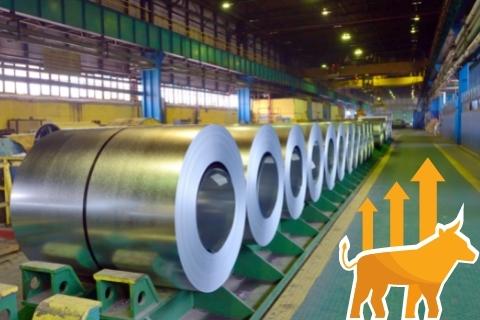Traded around the globe in significant volumes daily, steel is an essential raw material for many of the world’s largest organisations. Crucial to the car, transport and construction sectors, steel is often a good commodity to trade in times of economic growth when demand for steel based products tends to rise. As a material with extensive end-user applications, and high demand throughout the global economy, steel prices tend to be supported by the ongoing requirements of global economic activity.
Why Spread Bet on Steel?

Of course, the major downside with trading physical steel is the need for storage, freight and warehousing costs – after all, it’s not likely most investors or even more pension funds would have the physical space to take stock of hundreds of tons of steel. As a workaround, and one that’s also more tax efficient than derivatives such as steel futures, spread betting allows traders to capitalise on the movements of steel pricing without being exposed to these issued.
Recommended Steel Spread Betting Brokers


These companies are best suited for steel spread betting. Choose your spread betting broker.
Who Trades Steel?
Like most commodities, steel finds a heavy trade on commodities exchanges through traders and investment managers, who view it as an effective way to capitalise on economic growth and an indicator of forthcoming industrial activity. The majority of global steel trade is handled through the various commodity exchanges, which supplies steel to businesses, governments and individual investors around the world.
Aside from investors and funds, who trade steel purely for its speculative value and to capitalise on price fluctuations in the steel market, steel is also in significant demand as a raw material across a number of different industry sectors. For example, cars are manufactured in large part from steel, and so global car manufacturers need a constant supply and in doing so contribute considerably to steel prices. Likewise, steel is a vital component in many construction projects, from homes to offices, hospitals to schools, and so its pricing really matters to certain key areas of the global economy, and the organisations and investors that trade on the strength of that.
Spread betting on steel is a popular alternative for many of the private investors speculating on steel prices, as an easy way around the disadvantages of dealing in such an expensive, bulky product. With considerably lower barriers to entry than trading steel or steel derivatives, spread betting has become a naturally widespread alternative mechanism through which those that trade steel can do so.
How to Trade Steel Effectively?
Steel is a more demand-driven commodity than many others, relying heavily on the rate of global demand at any given time to determine its value. The best approach towards trading steel is to identify growing demand in the crucial sectors to which steel relates, and booming global economies invariably mean booming steel prices. Key reports to look at are construction sector headlines, particularly in the US, Europe and the emerging economies, in addition to general economic figures for the same areas.
Even during times of recession there is money to be made from spread betting on steel, as the first signs of a pick-up in the housing, commercial property and heavy industry markets will spell good news for steel prices on the global commodity exchanges.

